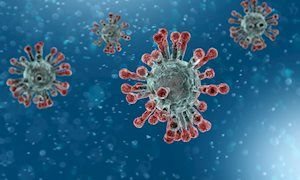
Working in intensive care units during the first peak of the corona crisis has an enormous impact on the mental state of Dutch ICU nurses. Some of them indicate that they suffer from anxiety complaints, depressive feelings and/or post-traumatic stress-related complaints. In addition, there is a high risk of dropping out in the next crisis. This is shown by the first results of a study conducted by Radboudumc and Erasmus MC in collaboration with the professional association for IC nurses V&VN-IC and the Dutch Association for Intensive Care (NVIC).
How are you doing now? That's what the researchers wanted to find out. Over 700 IC nurses from all over the Netherlands took part in the questionnaire survey. The results show that working long hours under high pressure during the first peak of the corona crisis had, and still has, many consequences for the ICU nurses. The level of stress was more than three times higher than in 'normal' times. Almost 30% have symptoms of anxiety, 20% have symptoms of depression and over 20% clearly suffer from post-traumatic stress (PTSD) symptoms.
Related news items

Promising aftercare for vulnerable patients in ICU
30 March 2021 ICU researchers Mark van den Boogaard and Marieke Zegers will receive a ZonMw/ZIN grant of 1.6 million euros for their research into cost-effectiveness of multidisciplinary, structured and personalized post-ICU care. go to page
New Physical, Mental, and Cognitive Problems 1-year Post-ICU
18 February 2021Half of the Intensive Care Unit (ICU) survivors suffer from new physical, mental and/or cognitive problems one year after ICU admission. This is evident from the large-scale MONITOR-IC study led by the Radboudumc.
go to page
Nina Wubben won best abstract prize at the Dutch Intensive Care conference
26 February 2020 Nina developed a prediction model for change in quality of life one year after ICU-admission. go to page
Funding for shared-decision making on the ICU
5 July 2018 Department of Intensive Care Medicine received a grant of 488,000 euro from the National Health Care Institute to improve shared-decisions regarding admission and treatments on the ICU using patient-reported outcomes (PROMs). go to page

